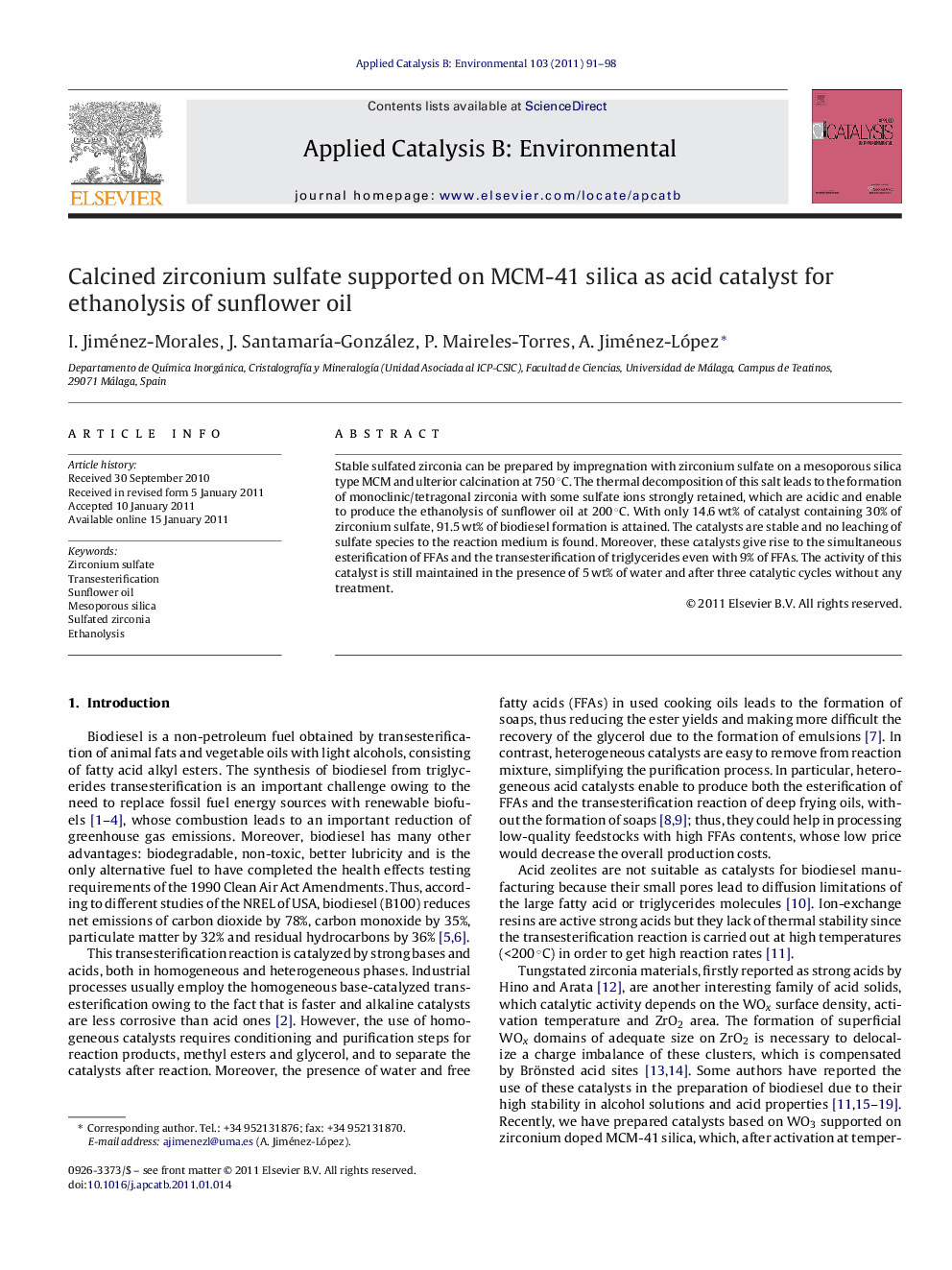| Article ID | Journal | Published Year | Pages | File Type |
|---|---|---|---|---|
| 46997 | Applied Catalysis B: Environmental | 2011 | 8 Pages |
Stable sulfated zirconia can be prepared by impregnation with zirconium sulfate on a mesoporous silica type MCM and ulterior calcination at 750 °C. The thermal decomposition of this salt leads to the formation of monoclinic/tetragonal zirconia with some sulfate ions strongly retained, which are acidic and enable to produce the ethanolysis of sunflower oil at 200 °C. With only 14.6 wt% of catalyst containing 30% of zirconium sulfate, 91.5 wt% of biodiesel formation is attained. The catalysts are stable and no leaching of sulfate species to the reaction medium is found. Moreover, these catalysts give rise to the simultaneous esterification of FFAs and the transesterification of triglycerides even with 9% of FFAs. The activity of this catalyst is still maintained in the presence of 5 wt% of water and after three catalytic cycles without any treatment.
Graphical abstractFigure optionsDownload full-size imageDownload as PowerPoint slideResearch highlights▶ Calcination of zirconium sulfate supported on MCM-41 silica leads to stable sulfated zirconia. ▶ The resulting catalysts are active in the ethanolysis of sunflower oil. ▶ Their activity is maintained after three catalytic cycles. ▶ These acid catalysts simultaneously catalyze the esterification of fatty acids and the transesterification of triglycerides.
